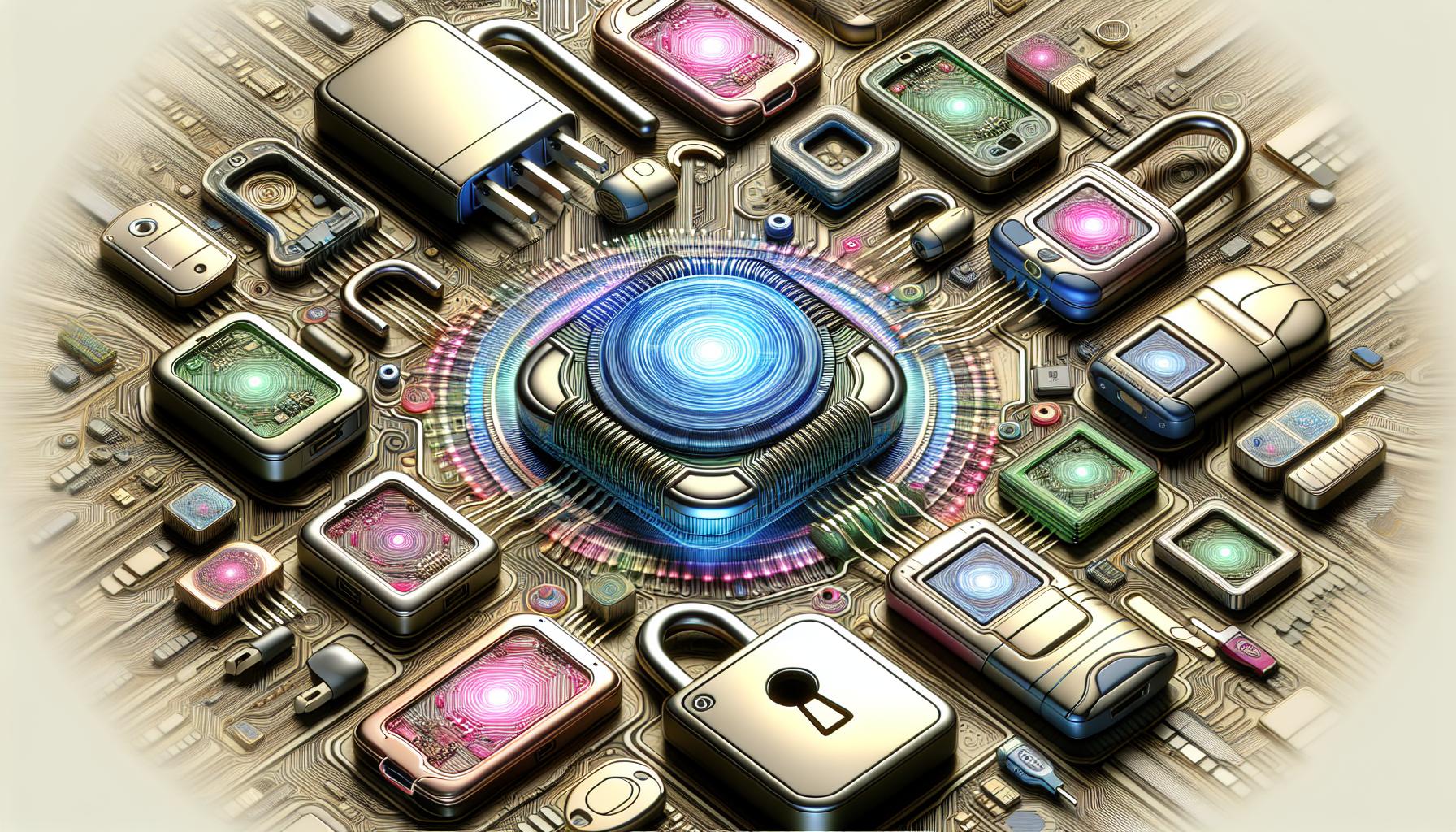The Popularity of Battery-Powered Smart Locks and Battery-Related Issues
Battery-powered smart locks with shared access capabilities have gained significant popularity in both consumer and industrial access control applications. These locks offer convenience and flexibility, allowing users to grant access remotely and track entry activity. However, battery-related issues are a common challenge faced by users. The fluctuating temperatures and extremes of outdoor environments can significantly reduce battery life, while indoor applications can incur high battery replacement costs, especially when dealing with a large number of locks. Moreover, safety concerns in industries such as oil, gas, mining, and aviation prohibit the use of lithium batteries.
Energy-Harvesting Technologies: Eliminating the Need for Batteries
To address the battery-related challenges faced by smart lock users, the use of energy-harvesting technologies has emerged as a feasible solution. These technologies eliminate the need for batteries in smart lock applications, providing a more sustainable and cost-effective option. However, choosing the right energy-harvesting technology can be a challenge, particularly when it comes to ensuring 24/7 serviceability.
NFC Energy-Harvesting: A Practical and Powerful Solution
Among the various energy-harvesting technologies available, Near-Field Communication (NFC) energy harvesting has emerged as a practical choice for smart lock systems. NFC technology is widely available on mobile phones, making it convenient and accessible for users. Moreover, NFC energy harvesting can provide the necessary milliwatt range of power required for 24/7 serviceability, overcoming the limitations of other energy-harvesting technologies such as photovoltaic, piezoelectric, and thermoelectric, which deliver power in the µW range. Infineon’s latest solution for NFC locks offers a highly integrated and flexible single-chip design that enables the creation of miniaturized, battery-free, mobile phone-controlled smart lock systems.
Infineon’s NFC Energy-Harvesting Solution: The Key to Battery-Free Smart Lock Systems
Infineon’s NFC energy-harvesting solution has been specifically designed to address the challenges faced by users of battery-powered smart locks. By harnessing the power of the NFC field, this solution can harvest a significant amount of energy, ranging from 20 to 50 mW, depending on the type of mobile phone in use. The high level of integration provided by this single-chip solution gives designers the flexibility to create miniaturized smart lock systems that operate without the need for batteries. With Infineon’s solution, users can enjoy the convenience and security of smart locks without the hassle of battery replacement or the limitations imposed by lithium batteries.
The Future of Smart Locks: Battery-Free and Mobile Phone-Controlled
Infineon’s innovative NFC energy-harvesting solution marks a significant step towards the future of smart lock technology. By eliminating the need for batteries and leveraging the power of mobile phones, these battery-free smart lock systems offer a more sustainable, cost-effective, and convenient option for both consumers and industries. With the flexibility and power provided by Infineon’s solution, designers can create highly efficient and reliable smart lock systems that combine the benefits of shared access capabilities with the accessibility of mobile technology. As the popularity of smart lock systems continues to grow, the adoption of battery-free and mobile phone-controlled solutions is expected to increase, revolutionizing the way we secure our premises and granting users greater control and peace of mind.
Analyst comment
Positive news: The popularity of battery-powered smart locks has increased, offering convenience and flexibility. However, battery-related issues are a common challenge. Energy-harvesting technologies, specifically NFC energy harvesting, provide a sustainable and cost-effective solution. Infineon’s NFC energy-harvesting solution offers a highly integrated and flexible design for battery-free smart lock systems. The future of smart locks is expected to be battery-free and mobile phone-controlled, revolutionizing security systems. Market: The market for battery-free and mobile phone-controlled smart lock systems is expected to increase as consumers and industries seek more sustainable, convenient, and secure options.













